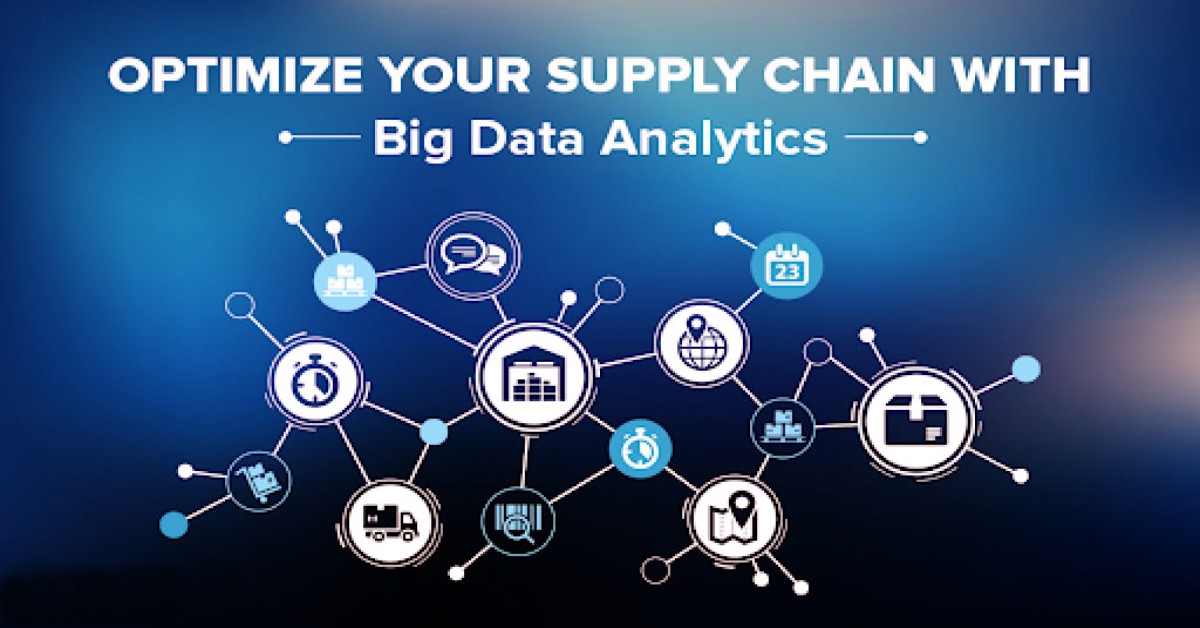Top 5 Ways Big Data Can Transform the eCommerce Landscape
Data & analytics have become the key to success in eCommerce. Global e-retailers are doing their best to leverage the power of data science. Commercial data not only helps them to make informed decisions about marketing and target users but also enhances the performance and user experience of their eCommerce websites.
According to Statista, global revenue from the big data analytics market is expected to reach USD 68.9 billion by the end of 2025. A recent survey also revealed that more than 56% of businesses agreed to drive business innovation with the help of data.
This post discusses the top 5 ways through which Big Data can prove to be a transforming technology for the eCommerce industry, along with its crucial aspects.
Table Of Contents
- A Brief about Big Data
- Types of Big Data
- How eCommerce Can Make the Most Out of Big Data?
- Forecasting Demand
- Optimizing Pricing Policy
- Facilitating Supply Chain Management
- Targeted Personalization with Secure Payment Options
- Exceptional Customer Service
- The Essence of Big Data is Evolving in eCommerce
- Think Big & Be Better!
A Brief about Big Data
Data includes anything from images, videos, texts, symbols, and numbers stored and transmitted from one device to another via electrical signals. The volume, velocity, and variety of this data is something that makes it BIG.
The term “Big Data” dates back to the 1990s, but businesses started realizing its essence with the constantly evolving technological revolution in the first decade of the 21st century. iTech Art, IBM, Oracle, Amazon, Microsoft, Google, Splunk, and RightData are some renowned Big Data software vendors worldwide.
Big Data technology has certainly revolutionized various industries across the globe. Healthcare, space, music, utilities, wearables, and cybersecurity are among some top industries that have successfully leveraged the true potential of Blockchain technology. eCommerce is a new entrant to this technology and there’s a huge scope for it to utilize data for more crucial insights into changing consumer behavior and offering customized user experiences through effective eCommerce development.
Types of Big Data
Data storage is critical to effectively using it. But, before doing that, it’s important to know the type of data you have. These days, businesses use cloud-based services like AWS to store all kinds of data cost-effectively and securely. Big Data is widely categorized into three major types:
- Structured Data: The data which is already stored in rows and columns of your database is structured data. The data is arranged in a sequence and forms almost 20% of your total existing data that is widely used for programming and IT-related services.
- Unstructured Data: As its name suggests, unstructured data has no clear format in terms of storage. This is the remaining 80% of the data that businesses could hardly analyze due to its abundance. It includes everything from the internet like social media, mobile data, and website content.
- Semi-structured Data: You can consider this data as the borderline between structured and unstructured data. Data that is not in proper database format but has some organizational properties can be considered semi-structured data.
How Can eCommerce Make the Most Out of Big Data?
You must have gained valuable insights into this revolutionary technology so, let’s discuss some amazing benefits that eCommerce companies can get by utilizing Big Data.
1. Forecasting Demand

Big data has proven to be a cornerstone for demand forecasting with the help of advanced analytical tools and statistical models to make predictions from the demand perspective. Data analytics comes with an array of applications that can help e-retailers to enhance their decision support system and marketing campaigns by collating useful information and stats. Blockchain offers a ledger of data that is accessible to all the members within a supply chain network and the good thing is that they can only view this data without making any changes to it. Data like sales, inventory, manufacturing, and more are very crucial to decide the accuracy of demand forecasting.
By using predictive analysis tools, e-retailers can easily forecast market demands by streamlining various customer data points. This includes past purchasing patterns, demographic data, social media sentiments, and data from web activities. The conventional method of demand forecasting included historical data and the kind of experience under a stable environment. In the current eCommerce niche, various factors can impact demand requirements and it can be anything from prices to promotions and from weather to a change in technology. Hence, implementing predictive analysis strategically can prove invaluable for making demand forecasts with data-driven information.
2. Optimizing Pricing Policy
Price is a major factor that impacts purchase decisions to a significant level and e-retailers can make effective use of analytical techniques with the help of Big Data. Determining the right pricing policy includes market segmentation and competitor analysis based on tangible data. Hence, the larger data you have, the better will be the chances to hit the right and the most competitive pricing policy. By extending the scope of predictive capabilities of Big Data, digital retailers can come up with data that has a significant impact on pricing factors.
To yield optimum results using Big Data analytics, online retailers must approach this aspect professionally and smartly to find the optimum price for their products. It’s not about the data, it’s about the analytical skills. Hence, you must have a good knowledge of what factors to include and what to overlook. Adopting automated systems will save you time and help you set prices for clusters based on the data. You need to identify profitable prices that can set apart your product in comparison to your competitors including all deals and discounts.
Customers appreciate it when they get customized prices for the products which they often shop for. Moreover, Big Data analytics can also help e-retailers to adopt a dynamic pricing strategy where the price for a product varies from one customer to another or fluctuates at regular intervals depending on a set of variables.
3. Facilitating Supply Chain Management

For eCommerce, supply chain operations are becoming more complex with an increased number of products and processes to support maximum customization. Big Data offers an array of solutions to streamline the supply chain with flexible planning and scheduling options. E-retailers need to focus on real-time telemetry data gathered from smart sensors distributed along the production line. By focusing on this aspect in your predictive analysis, you can eliminate the chances of failures and reduce downtime for eCommerce store deliveries. Even in case of any failure in this respect, Big Data acts retroactively and pinpoints the cause to prevent such glitches in the future.
On-time delivery is a deciding factor for any eCommerce company to build brand value and customer loyalty and using Big Data analytics including weather, traffic data, GPS position, fleet information, and driver’s performance can bring delivery risks to a minimum. It brings you more collaboration across various distribution channels and matches your demand, supply, and inventory in an intuitive way. Amazon — the retail giant has effectively reduced its delivery time by offering regular alerts for expected delivery time and minute-by-minute tracking.
Just make sure that you use Big Data following your eCommerce goals which will allow you to compare your vendor’s performance against your set KPIs. This will also help you find out the loopholes between suppliers, delivery time, and breakages.
4. Targeted Personalization with Secure Payment Options
Targeted advertising is the latest trend followed by online retailers to grab instant attention for their products. Personalization has become the most sure-shot way to earn loyal customers for which marketers are making effective use of Big Data technology and their analytical skills to deliver targeted ads. Monitoring the information related to browsing requests and preferences helps you know your visitors better and anticipate the kind of products they are looking for. You can revamp your marketing campaigns based on these analytics that will be more focused on each customer’s needs.
Big Data’s predictive analysis offers crucial insights into what your customers will buy and then based on this, you can strategically optimize your product recommendation engine with more personalized options. Artificial Intelligence is another transforming technology that can be used along with Big Data to have in-depth knowledge of your customers and their upcoming purchasing patterns. Using some quality Big Data tools like Apache Spark, Flink, Hadoop, and RapidMiner, you can easily generate authentic leads and analyze the prospects who have greater chances of being converted into paying customers.
The role of Big data is also indispensable when it comes to integrating multiple payment options. It helps you know some most preferred payment options bringing down the purchase time and monitoring payment data including collection, processing, and sharing. There are some advanced analytic solutions that Big Data offers that help you to detect fraud in real-time and identify possible risks attached to it. Hence, Big Data proves to be much more advantageous in integrating safer and faster payment options in your eCommerce website with the required level of personalization in making digital payments.
5. Exceptional Customer Service
Have you ever pondered over the speed of your customer service? If not, then have a look at this fact: According to a survey by Khoros, More than 83% of customers agreed that they remain loyal to brands offering good customer service.
Big Data not only helps you to do so but transforms the entire way you have been offering customer services. You can constructively utilize the data from your website, social media campaigns, and online tools or call centers to identify the possible drawbacks in your overall customer service. The majority of data that you will get will be unstructured and this is where you need to utilize your quantitative skills to analyze and evaluate it.
A study by Forbes revealed that 58% of organizations witnessed a significant rise in their customer retention rate that resulted from customer analytics. Focusing on real-time customer analytics can help you drive more business value and enhance customer experiences resulting in increased brand loyalty. Online retailers have realized the essence of getting valuable insights into consumer behavior to offer maximum personalization in products and remain competitive. Knowing the loopholes in your customer service and bridging those gaps from time to time will make your customers feel your concern for them resulting in developing a mutual relationship.
Customer communication is another crucial aspect that you can manage with Big Data analysis. People generally expect a quick response when they try to address their issues via social media and delivering a quick response ensures reduced negative feedback. This is only possible when you can effectively harness Big Data capabilities by tracking negative feedback and resolving them to a great extent.
The Essence of Big Data is Evolving in eCommerce
The data-driven approach toward customers is becoming a trend now and a necessity to survive in a stiffly competitive eCommerce industry. To ensure optimal growth in your eCommerce business, you must bring in Big Data technology along with some other revolutionary technologies like Artificial Intelligence, Machine Learning, and IoT. This will enable you to take a deeper dive into the ocean of information and using your analytical skills, you can easily develop robust brand value by offering targeted personalization for every customer.
Huge datasets and processing will be at the core of Big Data analytics where online retailers will be handling enormous amounts of data with much ease and flexibility to drive customer value and exceptional user experiences for their customers. Getting deeper insights into customers will be a deciding factor in the uptake of available datasets and transform your eCommerce business.
Think Big & Be Better!
Big Data Analysis has enabled worldwide businesses to leverage the maximum out of the information present around them and this is what online retailers will be looking forward to in the coming time. The more insights you dwell to gain out of this transforming technology, the better results you will gain through your enhanced analytical skills.
By now, you must have realized the essence and scope of Big Data and its transformative capabilities. So, before you hire an eCommerce development company or you already have an eCommerce website, you must discuss Big Data integration and analytical services with your service provider to keep gaining valuable insights from your website data.









